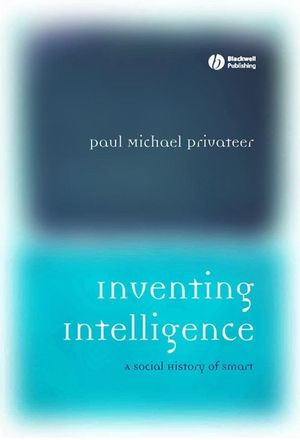

Most ebook files are in PDF format, so you can easily read them using various software such as Foxit Reader or directly on the Google Chrome browser.
Some ebook files are released by publishers in other formats such as .awz, .mobi, .epub, .fb2, etc. You may need to install specific software to read these formats on mobile/PC, such as Calibre.
Please read the tutorial at this link: https://ebookbell.com/faq
We offer FREE conversion to the popular formats you request; however, this may take some time. Therefore, right after payment, please email us, and we will try to provide the service as quickly as possible.
For some exceptional file formats or broken links (if any), please refrain from opening any disputes. Instead, email us first, and we will try to assist within a maximum of 6 hours.
EbookBell Team

4.3
68 reviewsInventing Intelligence charts the history of intelligence from its earliest articulations through to postmodern AI. Individual chapters recount the loving spheres of divine intelligence imagined by Plato, the self-conscious stylings of the Renaissance Man, the politics of intelligence in the Enlightenment, as well as contemporary assessments of digital intelligence and the mysterious adventure of Einstein’s brain. Ambitious in its historical sweep, unflinching in its challenge to conventional wisdom, Inventing Intelligence is for everyone and anyone who used to think that the parameters and the stakes of intelligence—evident in the current controversy over “intelligent” design—had been negotiated and finalized.Content:
Chapter 1 The Pre?Renaissance Tradition of Intelligence (pages 23–26):
Chapter 2 The New Landscape of Smart (pages 27–31):
Chapter 3 The First Smart Economy (pages 32–40):
Chapter 4 Renaissance Intellectual Trends (pages 41–54):
Chapter 5 Renaissance Philosophy and Fabrications of Intelligence: from Montaigne to Hobbes (pages 55–76):
Chapter 6 Smart Renaissance Science (pages 77–85):
Chapter 7 Profitable Knowledge and Intelligence Becomes a Career (pages 77–85):
Chapter 8 Intelligence and Dominant Renaissance Scientists (pages 86–88):
Chapter 9 Intelligence and the Enlightenment (pages 99–104):
Chapter 10 Illuminating Enlightenment Intelligence (pages 99–104):
Chapter 11 Enlightenment Insight: Fallen Apples, Social Mathematics, and a New Intelligence (pages 105–110):
Chapter 12 The Clinical Gaze and Human Normalization (pages 111–146):
Chapter 13 Smart Architects and Contemporary Intelligence (pages 147–156):
Chapter 14 Smart Tools and Modern Intelligence (pages 159–197):
Chapter 15 Smart Critiques: New Sciences and New Mathematics (pages 227–244):